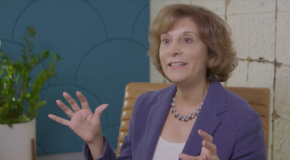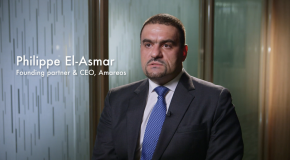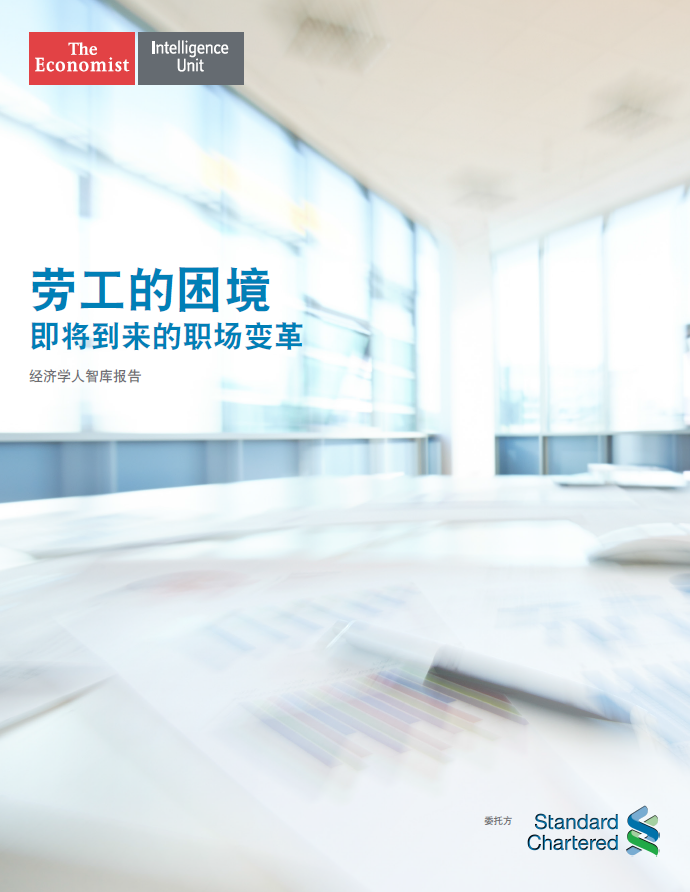How to limit global warming to 1.5°C
Related content

Resetting the agenda: How ESG is shaping our future
The Covid-19 pandemic has exposed a wealth of interconnections – between ecological and human wellbeing, between economic and environmental fragility, between social inequality and health outcomes, and more. The consequences of these connections are now filtering through, reshaping our society and economy.
In this setting, the need to integrate environmental, social and governance (ESG) factors when investing has become even more critical. Institutional investors must employ ESG not just to mitigate risks and identify opportunities, but to engage with companies to bring about the positive change needed to drive a sustainable economic recovery in the post-Covid world.
In order to understand how ESG could be both a new performance marker and a growth driver in this environment, as well as how institutional investors are using ESG to make investment decisions and to assess their own performance, The Economist Intelligence Unit (EIU), sponsored by UBS, surveyed 450 institutional investors working in asset and wealth management firms, corporate pension funds, endowment funds, family offices, government agencies, hedge funds, insurance companies, pension funds, sovereign wealth funds and reinsurers in North America, Europe and Asia-Pacific.
Download the report and infographic to learn more.

Charting the course for ocean sustainability in the Indian Ocean Rim
Charting the course for ocean sustainability in the Indian Ocean Rim is an Economist Intelligence Unit report, sponsored by Environment Agency Abu Dhabi and the Department of Economic Development Abu Dhabi, which highlights key ocean challenges facing the Indian Ocean Rim countries and showcases initiatives undertaken by governments and the private sector in the region to address these challenges.
Click here to view the report.

Fixing Asia's food system
The urgency for change in Asia's food system comes largely from the fact that Asian populations are growing, urbanising and changing food tastes too quickly for many of the regions’ food systems to cope with. Asian cities are dense and are expected to expand by 578m people by 2030. China, Indonesia and India will account for three quarters of these new urban dwellers.
To study what are the biggest challenges for change, The Economist Intelligence Unit (EIU) surveyed 400 business leaders in Asia’s food industry. According to the respondents, 90% are concerned about their local food system’s ability to meet food security needs, but only 32% feel their organisations have the ability to determine the success of their food systems. Within this gap is a shifting balance of responsibility between the public and private sectors, a tension that needs to and can be strategically addressed.
Embracing the chatbot
Related content

Steering through collaboration: CFOs driving new priorities for the future
It is well established that the modern CFO has a more strategic role to play in a business, but a clear action plan to achieve this is lacking. A key element of this is helping the business to deal with change. Some changes are planned: launching a new product or service, setting up operations in a new region or acquiring a competitor. Others may be unexpected: a major disruption to supply-chain operations, the emergence of new regulation and legal reporting requirements or the unpredictable impacts of global economic uncertainty.
Either way, when asked about the biggest challenges they face in executing their day-to-day activities, change is a recurring theme, according to a new survey of 800 CFOs and senior finance executives, conducted by The Economist Intelligence Unit. Managing unexpected changes to financial forecasts and adapting finance processes to rapidly evolving business models are top of mind.
Managing unexpected changes to financial forecasts and adapting finance processes to rapidly evolving business models are top challenges finance executives face in executing their day to-day activities.
Finance executives are also concerned with identifying how to align strategic, financial and operational plans towards common objectives and meaningfully analysing data across business units and regions. “All functions are working to meet these challenges and, as a finance head, we have to have visibility across all functions, how they are progressing [towards meeting goals] and ensuring that their direction is in line with overall strategic goals,” says Lalit Malik, CFO of Dabur, an Indian consumer goods manufacturer. It is incumbent upon CFOs therefore to be prepared not only to help their own function navigate uncharted territory, but the rest of the business too. That means breaking down the silos that commonly exist in organisations, in order to collaborate closely across functions, sharing information and data in the pursuit of common objectives.
All functions are working to meet these challenges and, as a finance head, we have to have visibility across all functions, how they are progressing [towards meeting goals] and ensuring that their direction is in line with overall strategic goals - Lalit Malik, CFO of Dabur, an Indian consumer goods manufacturer.
The clear custodian of collaboration
There are a number of reasons why the role of leading cross-company collaboration around steering should fall to the CFO and their team. First, through the activities of budgeting, the finance function is the custodian of the clear, quantitative expression of management expectations and determines how resources such as cash and people will be allocated in order to achieve them. In our survey, 90% of respondents say that finance should facilitate collaborative enterprise planning to ensure that operational plans are aligned with financial and strategic plans.
Second, through performance management, the finance function is the gatekeeper for critical data that illustrate how well—or otherwise—the company is rising to the challenge of change. That includes data relating to sales, supply chain and delivery, which need to be reported back to the business in ways that help drive improved decisionmaking. Our survey reveals that companies in which finance executives feel empowered to drive strategic decisions across business functions are more likely to report a higher financial performance in fiscal year 2016/17 and 2017/18 and anticipate higher growth rates for 2019/20.
Download Complete Executive Summary PDF

Transforming data into action
As businesses generate and manage vast amounts of data, companies have more opportunities to gather data, incorporate insights into business strategy and continuously expand access to data across the organisation. Doing so effectively—leveraging data for strategic objectives—is often easier said than done, however. This report, Transforming data into action: the business outlook for data governance, explores the business contributions of data governance at organisations globally and across industries, the challenges faced in creating useful data governance policies and the opportunities to improve such programmes. Learn more by downloading our whitepaper below.

Rethinking professional services in an age of disruption
The Right Skills: Bridging the strategy design-delivery gap
When Benoît Claveranne was appointed Chief Transformation Officer of the AXA Group in 2016,1 his first act was to hire Sébastien Van Dyk to head up HR for the transformation teams. Mr Claveranne recalls, “If I did not have someone focusing specifically on people, I had no chance. Integrating talent strategy with the company’s overall strategy may be the most important question of all [for successful delivery].”
16807
Related content

Steering through collaboration: CFOs driving new priorities for the future
It is well established that the modern CFO has a more strategic role to play in a business, but a clear action plan to achieve this is lacking. A key element of this is helping the business to deal with change. Some changes are planned: launching a new product or service, setting up operations in a new region or acquiring a competitor. Others may be unexpected: a major disruption to supply-chain operations, the emergence of new regulation and legal reporting requirements or the unpredictable impacts of global economic uncertainty.
Either way, when asked about the biggest challenges they face in executing their day-to-day activities, change is a recurring theme, according to a new survey of 800 CFOs and senior finance executives, conducted by The Economist Intelligence Unit. Managing unexpected changes to financial forecasts and adapting finance processes to rapidly evolving business models are top of mind.
Managing unexpected changes to financial forecasts and adapting finance processes to rapidly evolving business models are top challenges finance executives face in executing their day to-day activities.
Finance executives are also concerned with identifying how to align strategic, financial and operational plans towards common objectives and meaningfully analysing data across business units and regions. “All functions are working to meet these challenges and, as a finance head, we have to have visibility across all functions, how they are progressing [towards meeting goals] and ensuring that their direction is in line with overall strategic goals,” says Lalit Malik, CFO of Dabur, an Indian consumer goods manufacturer. It is incumbent upon CFOs therefore to be prepared not only to help their own function navigate uncharted territory, but the rest of the business too. That means breaking down the silos that commonly exist in organisations, in order to collaborate closely across functions, sharing information and data in the pursuit of common objectives.
All functions are working to meet these challenges and, as a finance head, we have to have visibility across all functions, how they are progressing [towards meeting goals] and ensuring that their direction is in line with overall strategic goals - Lalit Malik, CFO of Dabur, an Indian consumer goods manufacturer.
The clear custodian of collaboration
There are a number of reasons why the role of leading cross-company collaboration around steering should fall to the CFO and their team. First, through the activities of budgeting, the finance function is the custodian of the clear, quantitative expression of management expectations and determines how resources such as cash and people will be allocated in order to achieve them. In our survey, 90% of respondents say that finance should facilitate collaborative enterprise planning to ensure that operational plans are aligned with financial and strategic plans.
Second, through performance management, the finance function is the gatekeeper for critical data that illustrate how well—or otherwise—the company is rising to the challenge of change. That includes data relating to sales, supply chain and delivery, which need to be reported back to the business in ways that help drive improved decisionmaking. Our survey reveals that companies in which finance executives feel empowered to drive strategic decisions across business functions are more likely to report a higher financial performance in fiscal year 2016/17 and 2017/18 and anticipate higher growth rates for 2019/20.
Download Complete Executive Summary PDF

Transforming data into action
As businesses generate and manage vast amounts of data, companies have more opportunities to gather data, incorporate insights into business strategy and continuously expand access to data across the organisation. Doing so effectively—leveraging data for strategic objectives—is often easier said than done, however. This report, Transforming data into action: the business outlook for data governance, explores the business contributions of data governance at organisations globally and across industries, the challenges faced in creating useful data governance policies and the opportunities to improve such programmes. Learn more by downloading our whitepaper below.

Rethinking professional services in an age of disruption
How to reduce global warming: A roadmap
Related content

Resetting the agenda: How ESG is shaping our future
The Covid-19 pandemic has exposed a wealth of interconnections – between ecological and human wellbeing, between economic and environmental fragility, between social inequality and health outcomes, and more. The consequences of these connections are now filtering through, reshaping our society and economy.
In this setting, the need to integrate environmental, social and governance (ESG) factors when investing has become even more critical. Institutional investors must employ ESG not just to mitigate risks and identify opportunities, but to engage with companies to bring about the positive change needed to drive a sustainable economic recovery in the post-Covid world.
In order to understand how ESG could be both a new performance marker and a growth driver in this environment, as well as how institutional investors are using ESG to make investment decisions and to assess their own performance, The Economist Intelligence Unit (EIU), sponsored by UBS, surveyed 450 institutional investors working in asset and wealth management firms, corporate pension funds, endowment funds, family offices, government agencies, hedge funds, insurance companies, pension funds, sovereign wealth funds and reinsurers in North America, Europe and Asia-Pacific.
Download the report and infographic to learn more.

Charting the course for ocean sustainability in the Indian Ocean Rim
Charting the course for ocean sustainability in the Indian Ocean Rim is an Economist Intelligence Unit report, sponsored by Environment Agency Abu Dhabi and the Department of Economic Development Abu Dhabi, which highlights key ocean challenges facing the Indian Ocean Rim countries and showcases initiatives undertaken by governments and the private sector in the region to address these challenges.
Click here to view the report.

Fixing Asia's food system
The urgency for change in Asia's food system comes largely from the fact that Asian populations are growing, urbanising and changing food tastes too quickly for many of the regions’ food systems to cope with. Asian cities are dense and are expected to expand by 578m people by 2030. China, Indonesia and India will account for three quarters of these new urban dwellers.
To study what are the biggest challenges for change, The Economist Intelligence Unit (EIU) surveyed 400 business leaders in Asia’s food industry. According to the respondents, 90% are concerned about their local food system’s ability to meet food security needs, but only 32% feel their organisations have the ability to determine the success of their food systems. Within this gap is a shifting balance of responsibility between the public and private sectors, a tension that needs to and can be strategically addressed.
Embracing a pattern of change: Model Innovation across banking, insurance and asset management
16802
Related content

The shifting landscape of global wealth: Future-proofing prosperity in a ti...
In some instances the impact of this shift will be shaped by local factors, such as demographic changes. In other instances this shift will reflect shared characteristics, as demonstrated by the greater popularity of overseas investing among younger high-net-worth individuals (HNWIs) brought up in an era of globalisation. Whatever the drivers, the landscape of wealth is changing—from local to global, and from one focused on returns to one founded on personal values.
Despite rising economic concerns and a tradition of investor home bias in large parts of the world, the new landscape of wealth appears less interested in borders. According to a survey commissioned by RBC Wealth Management and conducted by The Economist Intelligence Unit (EIU), younger HNWIs are substantially more enthusiastic about foreign investing. The U.S. is a particularly high-profile example of a country where a long-standing preference for investments in local markets appears set to be transformed.
Click the thumbnail below to download the global executive summary.
Read additional articles from The EIU with detail on the shifting landscape of global wealth in Asia, Canada, the U.S. and UK on RBC's website.

Fintech in ASEAN
To better understand the opportunities and challenges in developing a fintech business in seven ASEAN markets, The Economist Intelligence Unit conducted wide-ranging desk research supplemented by seven in-depth interviews with executives in Australia and ASEAN.
Download report and watch video interview to learn more.

Risks and opportunities in a changing world
Read our Taxing digital services, U.S. tax reform: The global dimension, & Planning for life after NAFTA articles by clicking the thumbnails below.
Preventing a "frozen middle": How to engage middle managers to close the strategy implementation gap
In a global survey of 500 corporate leaders conducted by The Economist Intelligence Unit,1 respondents pointed to middle and line managers as potential impediments to fulfilling strategic ambitions. The EIU interviewed Bharat Anand and John Seifert to explore the nature of— and solutions to—challenges in engaging the so-called frozen middle. Learn more by downloading our Q&A below.
16801
Related content

Steering through collaboration: CFOs driving new priorities for the future
It is well established that the modern CFO has a more strategic role to play in a business, but a clear action plan to achieve this is lacking. A key element of this is helping the business to deal with change. Some changes are planned: launching a new product or service, setting up operations in a new region or acquiring a competitor. Others may be unexpected: a major disruption to supply-chain operations, the emergence of new regulation and legal reporting requirements or the unpredictable impacts of global economic uncertainty.
Either way, when asked about the biggest challenges they face in executing their day-to-day activities, change is a recurring theme, according to a new survey of 800 CFOs and senior finance executives, conducted by The Economist Intelligence Unit. Managing unexpected changes to financial forecasts and adapting finance processes to rapidly evolving business models are top of mind.
Managing unexpected changes to financial forecasts and adapting finance processes to rapidly evolving business models are top challenges finance executives face in executing their day to-day activities.
Finance executives are also concerned with identifying how to align strategic, financial and operational plans towards common objectives and meaningfully analysing data across business units and regions. “All functions are working to meet these challenges and, as a finance head, we have to have visibility across all functions, how they are progressing [towards meeting goals] and ensuring that their direction is in line with overall strategic goals,” says Lalit Malik, CFO of Dabur, an Indian consumer goods manufacturer. It is incumbent upon CFOs therefore to be prepared not only to help their own function navigate uncharted territory, but the rest of the business too. That means breaking down the silos that commonly exist in organisations, in order to collaborate closely across functions, sharing information and data in the pursuit of common objectives.
All functions are working to meet these challenges and, as a finance head, we have to have visibility across all functions, how they are progressing [towards meeting goals] and ensuring that their direction is in line with overall strategic goals - Lalit Malik, CFO of Dabur, an Indian consumer goods manufacturer.
The clear custodian of collaboration
There are a number of reasons why the role of leading cross-company collaboration around steering should fall to the CFO and their team. First, through the activities of budgeting, the finance function is the custodian of the clear, quantitative expression of management expectations and determines how resources such as cash and people will be allocated in order to achieve them. In our survey, 90% of respondents say that finance should facilitate collaborative enterprise planning to ensure that operational plans are aligned with financial and strategic plans.
Second, through performance management, the finance function is the gatekeeper for critical data that illustrate how well—or otherwise—the company is rising to the challenge of change. That includes data relating to sales, supply chain and delivery, which need to be reported back to the business in ways that help drive improved decisionmaking. Our survey reveals that companies in which finance executives feel empowered to drive strategic decisions across business functions are more likely to report a higher financial performance in fiscal year 2016/17 and 2017/18 and anticipate higher growth rates for 2019/20.
Download Complete Executive Summary PDF

Transforming data into action
As businesses generate and manage vast amounts of data, companies have more opportunities to gather data, incorporate insights into business strategy and continuously expand access to data across the organisation. Doing so effectively—leveraging data for strategic objectives—is often easier said than done, however. This report, Transforming data into action: the business outlook for data governance, explores the business contributions of data governance at organisations globally and across industries, the challenges faced in creating useful data governance policies and the opportunities to improve such programmes. Learn more by downloading our whitepaper below.

Rethinking professional services in an age of disruption
Better life breakthroughs
Better life breakthroughs is a content series produced by The EIU and sponsored by Standard Chartered Private Bank. The aim of the series is to analyse innovations that have the capacity to extend and enrich life, create new experiences and improve society in general. For those with the means to incorporate cutting-edge technology into their lives – thereby experiencing the future before it becomes mainstream – the impact may prove more revolutionary than anyone can imagine.
More from this series

white paper
Labour pains: Coming shifts in the world of work
The media and popular literature abound with visions of work in the future. Some are dystopian, foreseeing a workplace

white paper
Labour pains: Coming shifts in the world of work - Simplified Chinese
由渣打私人银行赞助,经济学人智库(The Economist Intelligence Unit/The EIU

white paper
Better Life Breakthroughs: Innovation in Investment
The main conclusions in this report are: SRI is on the cusp of a evolution. Sustainability will become more

white paper
Better Life Breakthroughs: Innovation in Investment - Chinese

video
Labour pains: Coming shifts in the world of work - Video
How will the workforce and workplace change in the coming years? Jeanne Meister, founding partner of Future Workplace

video
Labour pains: Coming shifts in the world of work - Simplified Chinese Video
未来劳动力结构、职场力量平衡和办公场所设计将发生怎样的变化?我们采访了未来职场(

video
Better Life Breakthroughs: Innovation in Investment
Watch Philippe El-Asmar, founding partner and CEO of Amareos, as he talks about Fintech: Making sense of data

video
Better Life Breakthroughs: Innovation in Investment - Chinese
访问金融数据分析公司Amareos首席执行官Philippe El-Asmar
Related content

The future of healthcare
Imagine being diagnosed by an AI doctor, having your organs 3D printed, or having nanometer-sized robots roaming around your body to monitor your health. Are you excited or scared? All of these technologies might seem like science fiction for now, but they could become reality in the next 25, or even 5 years.
Welcome to the future of healthcare >>
The future of healthcare
Habits of the wealthy and globally mobile can often provide examples of how cutting-edge healthcare technologies integrate into people’s lives, and may serve as the preliminary stage of widespread future adoption. To explore this phenomenon, The Economist Intelligence Unit recently surveyed 480 high-net-worth individuals (HNWIs) across the fast-growing regions of Asia, the Middle East and Africa to study how their current healthcare habits might lead to breakthroughs for society as a whole.
The data tell of a healthcare future that is increasingly preventative, personalised and precise. It is also one that may be far less focussed on treatment and more on tailoring lifestyle interventions to manage one’s personal health risk and avoid diseases.Many of today’s innovations are moving in lock-step to enable this change. Mobile apps, genetic testing and advanced screenings are just some of the new technologies producing biometric data on an unprecedented scale. Big data analytics and artificial intelligence (AI) are leveraging large collections of information to provide more powerful insights that help physicians and patients better target health goals and measure progress. Advancements in precision medicine, immunology and 3D printing are also allowing for more personalised intervention when diseases do arise.
However, when new healthcare technologies go from niche use to broader application, they can find their efficacy and potential challenged by legacy systems, ethical debates and practicality barriers.
What will impede future technologies and propel others, and why? Which of today’s technologies have the greatest potential for impact in the near and far term, how are they being adopted, and how will they ultimately work their way into everyday healthcare?
These are the questions explored in The future of healthcare: preventative, personalised and precise, the third part of a research series on Better Life Breakthroughs, sponsored by Standard Chartered Private Bank.
Labour pains: Coming shifts in the world of work - Simplified Chinese Video
未来劳动力结构、职场力量平衡和办公场所设计将发生怎样的变化?我们采访了未来职场(Future Workplace)公司创始合伙人Jeanne Meister以及伍兹贝格(Woods Bagot)合伙人、亚洲区办公空间设计总监袁文翰。
点击下载报告
Related content

Labour pains: Coming shifts in the world of work - Simplified Chinese
由渣打私人银行赞助,经济学人智库(The Economist Intelligence Unit/The EIU)撰写的《劳工的困境:即将到来的职场变革》是“更美好的生活突破”系列的第二份报告。该系列报告旨在分析能够扩展和丰富生活、创造全新体验,并且可能改善整个社会的创新。本系列第一份报告研究了为高净值投资者开辟新的投资机会的技术进步。
本报告探究了在技术进步、劳工组成结构和态度转变、以及工作场所组织和设计新思路的综合影响下,工作环境将发生怎样的变化。
点击观看视频
Better Life Breakthroughs: Innovation in Investment - Chinese
访问金融数据分析公司Amareos首席执行官Philippe El-Asmar

Better Life Breakthroughs: Innovation in Investment - Chinese
《投资创新》是“更美好的生活突破”系列的第一份报告。该系列报告旨在分析能够扩展和丰富生活、创造全新体验,并且可能改善整个社会的创新。对于有能力将尖端技术融入生活,从而在主流趋势降临之前就体验未来的人,其所具有的颠覆影响力可能超越所有人的想象。从计算、金融科技、医学和医疗保健的进步,到商业太空旅行和人工智能的发展,这些变化在其早期阶段通常都是由那些具有全球眼光、充满求知欲的消费者推动的。
在这首份报告中,我们研究了技术创新与进步如何为高净值投资者开辟新的投资机会途径,未来又将如何发展。
Labour pains: Coming shifts in the world of work - Simplified Chinese
由渣打私人银行赞助,经济学人智库(The Economist Intelligence Unit/The EIU)撰写的《劳工的困境:即将到来的职场变革》是“更美好的生活突破”系列的第二份报告。该系列报告旨在分析能够扩展和丰富生活、创造全新体验,并且可能改善整个社会的创新。本系列第一份报告研究了为高净值投资者开辟新的投资机会的技术进步。
本报告探究了在技术进步、劳工组成结构和态度转变、以及工作场所组织和设计新思路的综合影响下,工作环境将发生怎样的变化。
Related content

Labour pains: Coming shifts in the world of work - Simplified Chinese Video
未来劳动力结构、职场力量平衡和办公场所设计将发生怎样的变化?我们采访了未来职场(Future Workplace)公司创始合伙人Jeanne Meister以及伍兹贝格(Woods Bagot)合伙人、亚洲区办公空间设计总监袁文翰。
点击下载报告
Better Life Breakthroughs: Innovation in Investment - Chinese
访问金融数据分析公司Amareos首席执行官Philippe El-Asmar

Labour pains: Coming shifts in the world of work
The media and popular literature abound with visions of work in the future. Some are dystopian, foreseeing a workplace where software and machines perform most tasks and humans are thin on the ground. Others are benign, anticipating that current modes of work will survive well into the future, and that new technologies will make work and the workplace a more enjoyable experience than today. However, even those of the latter, more optimistic bent acknowledge that the path to the work future will be strewn with difficult realities that employers and employees will need to face up to.
Does the inexorable expansion of the digital economy portend a shift of the balance of power in the workplace? Will the rise of an on-demand workforce further upset this balance? And how will the relentless march of today’s emergent technologies, including artificial intelligence (AI) and others impact the work environment?
Click here to watch video.Labour pains: Coming shifts in the world of work - Video
How will the workforce and workplace change in the coming years? Jeanne Meister, founding partner of Future Workplace and Ray Yuen, principal and Asia workplace design leader of Woods Bagot share their insights.
Download report from here.
Related content

Labour pains: Coming shifts in the world of work - Video
How will the workforce and workplace change in the coming years? Jeanne Meister, founding partner of Future Workplace and Ray Yuen, principal and Asia workplace design leader of Woods Bagot share their insights.
Download report from here.
Better Life Breakthroughs: Innovation in Investment
Watch Philippe El-Asmar, founding partner and CEO of Amareos, as he talks about Fintech:
Making sense of data Driving smarter decisions Fintech solutions and AI
Better Life Breakthroughs: Innovation in Investment
The main conclusions in this report are:
SRI is on the cusp of a evolution. Sustainability will become more standardised. Emerging markets will catch up with - and at times surpass - developed markets. "Green" will go mainstream. Technology will "democratise" investment. Expect an SRI-fintech feedback loop.

